Straight to the Mun
Of Kerbals and Space and Programs
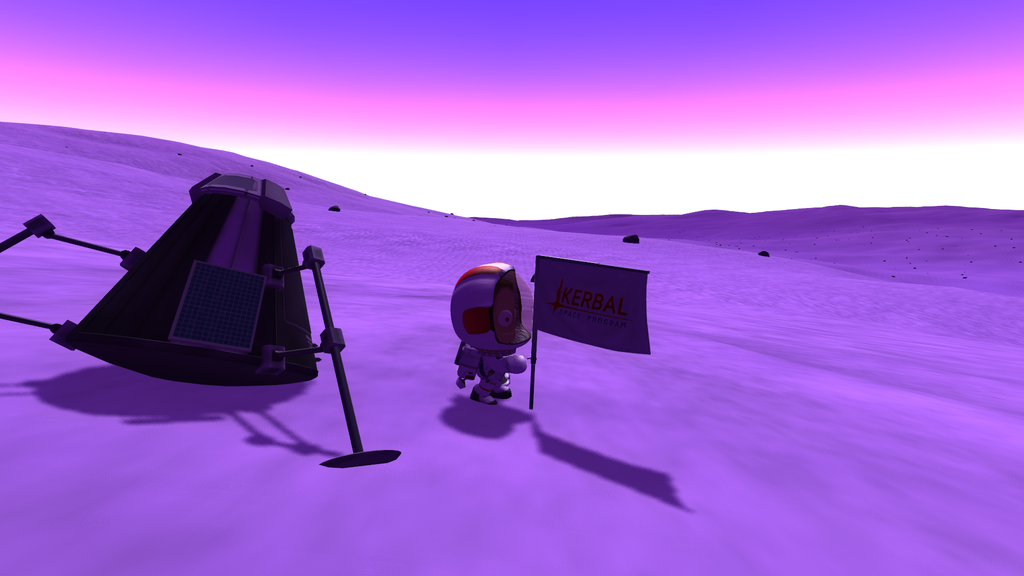
In June 2011, an unassuming sandbox game was released as a public alpha. It was called "Kerbal Space Program." The goal was to build a rocketship, put a green guy called a Kerbal into it, and try to get them into space. That was it. No campaign. No money to worry about. Just an unlimited number of thrusters, fuel tanks, and overly-enthusiastic Kerbals.
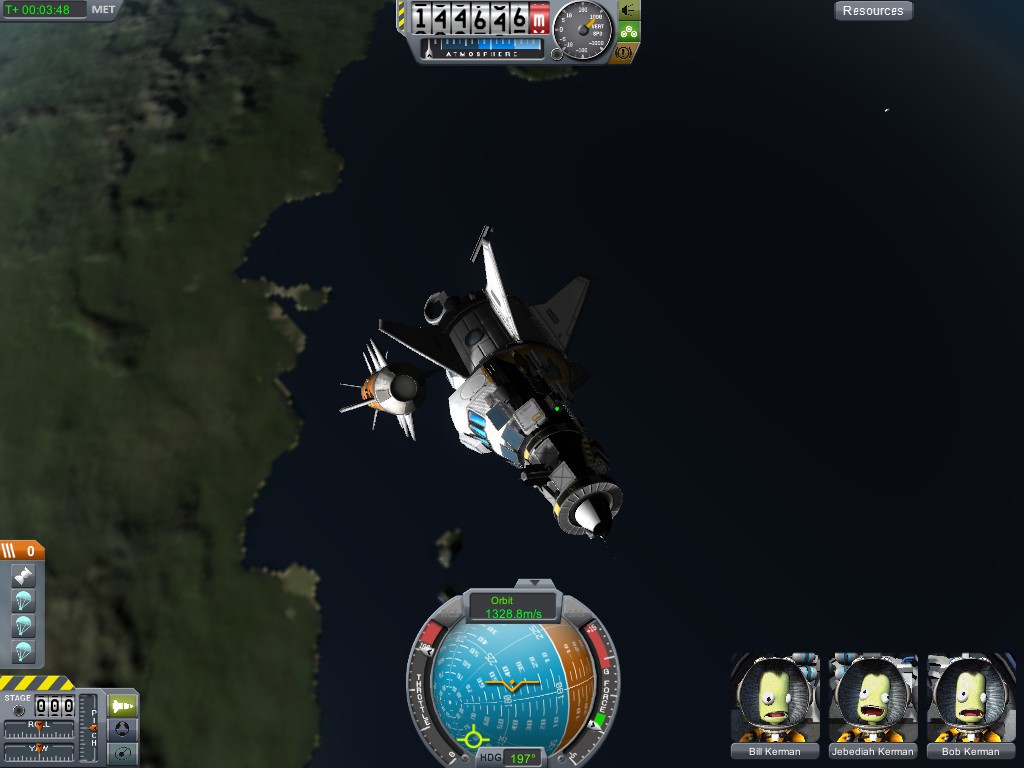
It was simple.
And unimaginably fun. While the game gives you a hangar of tools, you can't simply just throw some thrusters on a cockpit and expect to get to where you're going. The game utilizes real (albeit scaled-down) physics and distances to really make you think about what you're doing, where you're going, and how exactly you want to get there. Fuel gets you where you're going, but it's also heavy and will slow you down if you have too much, and while you may want to just strap the most powerful thrusters to your fuselage that you can, that is going to eat a lot of fuel very quickly and leave you with next to nothing by the time you get to space.
Despite its cartoony look, "Kerbal Space Program" is hard. You have to think and strategize and (most importantly) learn from your failures. Why did you lose control of the flight at this moment? How can I plot a course for that celestial body using the least amount of fuel? What was that thing that fell off? Did I need that thing that fell off? Failures in Kerbal Space Program are just as spectacular as the successes. You're building a working space program, one carefully placed canard at a time.
Player Theory was able to get in touch with two members of Squad (the studio behind "Kerbal Space Program"), Bob Holtzman who deals with public relations, and Chad Jenkins, one of the game's developers.
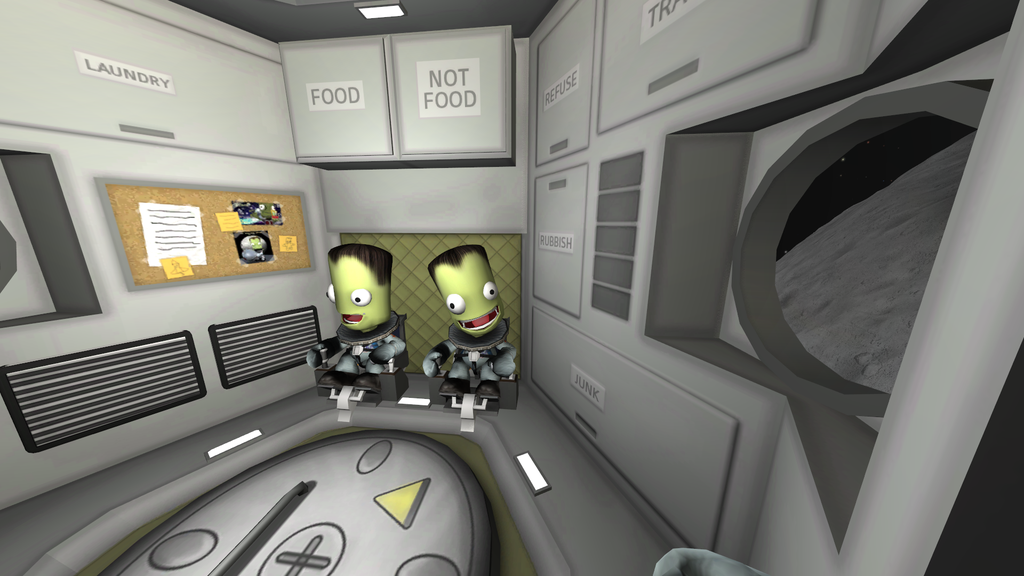
PT: Congratulations on your 0.21 update! This patch is bringing some pretty cool things into the fold. What addition are you personally most excited about?
BH: Thanks – the team worked really hard to deliver a great update and get us closer to a complete game. In terms of my personal excitement, I’m pretty stoked for Career Mode and think the addition of the Astronaut Complex is a major step toward creating a full-fledged space agency simulation. Choosing which fearless Kerbal astronauts embark on a mission is going to be a lot of fun – especially when you’re laughing at their response to your next crash landing!
CJ: I'm really happy to have such a large amount of the necessary structure and framework go in behind the scenes of 0.21. It's not something you can really put on a tag line for an update. But with that out of the way, we can really start to focus on adding all the fun new features we've been planning for Career mode. It's a pretty exciting time indeed.
PT:This question is especially relevant considering the new addition of the ‘Astronaut Complex Facility’ with the 0.21 update. I get the Space Program part of the game – I’m shooting rockets into space. But the “Kerbal” part. Where did the idea for Kerbals come from? How were they conceived?
BH: Felipe Falanghe, our lead developer used to play with fireworks as a kid and would strap little tin men to them he called Kerbals. Squad offers a program where its employees can pitch any form of business for the company to take on and if the owners, Ezequiel Ayarza and Adrian Goya, like your business plan, they’ll try to make it happen. That’s how "KSP" was started – Felipe was educated as a game developer and dreamed of making a game. Adrian and Ezequiel reminded him of their “Make Your Dream Come True” program and worked with him to create a plan for "KSP."
PT: Are Kerbals alone in the universe (Kerbalverse?)?
BH: As far as they know, they’re all alone, but keep in mind, they’re just getting their space program going, so asking them if they’re alone in the universe is sort of like asking us if we’re alone. We don’t really know. Neither do they.
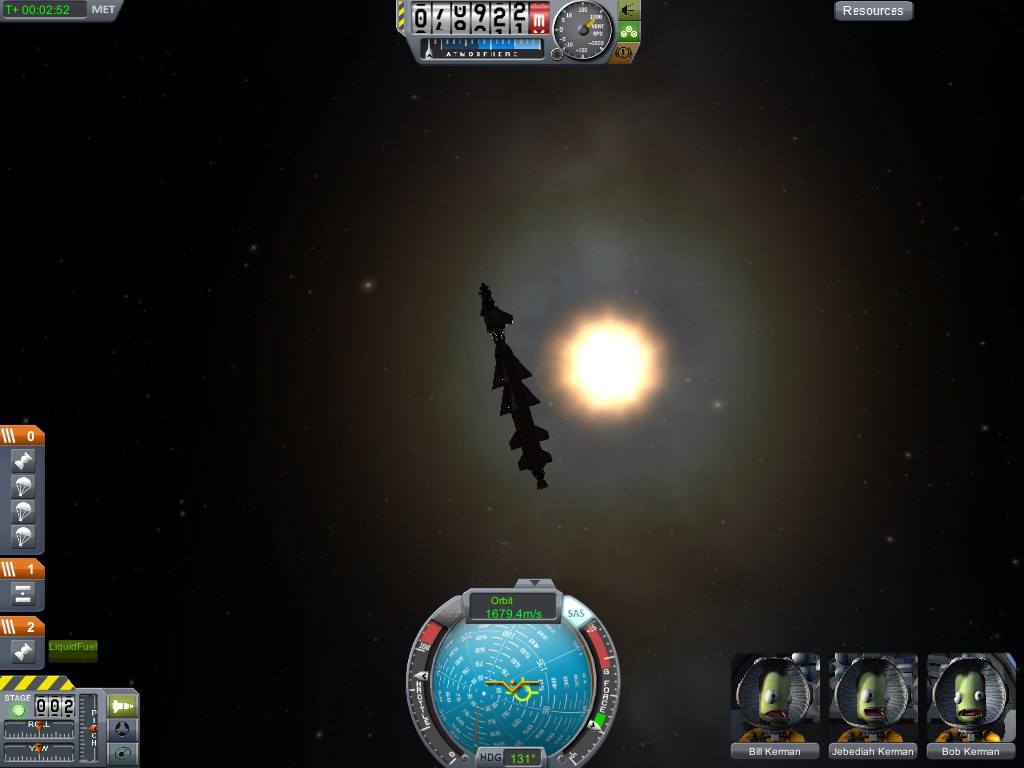
PT: "Kerbal Space Program" is one of the funnest sandbox experiences I think I've ever had. Somehow, you've even made failing fun. During development and after the game was released, how did you feel about the game? Was there a point where you thought it would fail? And counter to that, was there a definite point when you suddenly realized: "Hey, people actually like this thing"? How did that feel?
CJ: We quickly grew a passionate community of players and modders who loved the game. They were all very supportive of me and helped in making my first mod for the game. After that I was absolutely hooked on creating content for "KSP." Talking with the team, we all just feel like we're living in a dream. Our awesome and supportive community offers us the opportunity to work on a great game like this. I think the real revelation was the universal appeal of the game. I had previously expected "KSP" to attract people who were already interested in space flight. Instead, I'm constantly seeing players actively learning about space travel and getting excited about their personal achievements. It's quite rewarding to see players come in wondering how to get in orbit, and then shortly after, to see them speaking confidently about orbital concepts and terminology.
BH: To speak to your first point, that was a crucial component of development – to make sure failure was fun and as somebody who has watched most of my rocket designs go down in flames – it’s one of the biggest successes in our game design. As for the second question, "KSP "was in development for seven months when the team decided to make a free public Alpha release of the game because we had no idea if what we were doing actually had a public audience. Felipe posted the version to the "Orbiter" (a free simulator) and "Unity3D" (the engine "KSP" is built on) forums. To our surprise, we had more than 30,000 visitors to our site in just a few days. The team felt great with the response, knew we were not completely lost on our concept, and have watched the community continue to grow since then.
PT: "Kerbal Space Program" has an incredible fan base that has contributed way too many amazing mods to count. Do you ever check out some of the things that fans are adding to your game? Do you have a favorite mod or user creation?
CJ: I'm constantly stunned by all the amazing creations that come from the community. Checking out what the community creates is one of the most rewarding parts of developing "KSP." It's really hard to pick any one thing as a favorite, but I've been very impressed by both the "Kerbals at War 2" (BH: This video was recently featured on Kotaku) and "Build, Fly, Dream" fan trailers.
PT: As a developer of "Kerbal Space Program," what is your proudest achievement with the game?
CJ: I read a lot of feedback from the community. For me, it was when I read personal stories of players who have been inspired to learn more about space or to pursue studying in the STEM fields.

PT: As a player of Kerbal Space Program, what is your proudest achievement with the game?
CJ: The first time I successfully pulled off an orbital rendezvous and docking. I was finally able to start building space stations that allowed me to refuel and land on any planet in the game.
BH: I’m proud of the few times I can safely return my Kerbalnauts home from outer space. It’s pretty rare, unfortunately for them.
PT: You guys were a pretty big part of the Summer Steam Sale this year – you had your own official Steam Summer Getaway trading card and everything. How did you become a part of that?
BH: Steam is an incredible partner for us and we’re really proud to be a founding part of their Early Access program, which is really one of the great things they do for developers on their platform. Steam handpicks the games they want for the trading card giveaway, which was quite an honor as an indie game.
PT: Kerbal Space Program wasn't the only "in development" game to get to be one of the ten Summer Getaway cards; you were there with "Prison Architect." What do you think it means for the industry when two independent games that aren't even finished yet are highlighting one of the biggest PC game sales of the year?
BH: Disruption is the nature of technology and software, so it’s almost the natural state of affairs that there are indie games making a splash. It also speaks to how Valve supports all levels of developers with Steam and understands the ecosystem needs all kinds of games to thrive. It’s pretty cool.
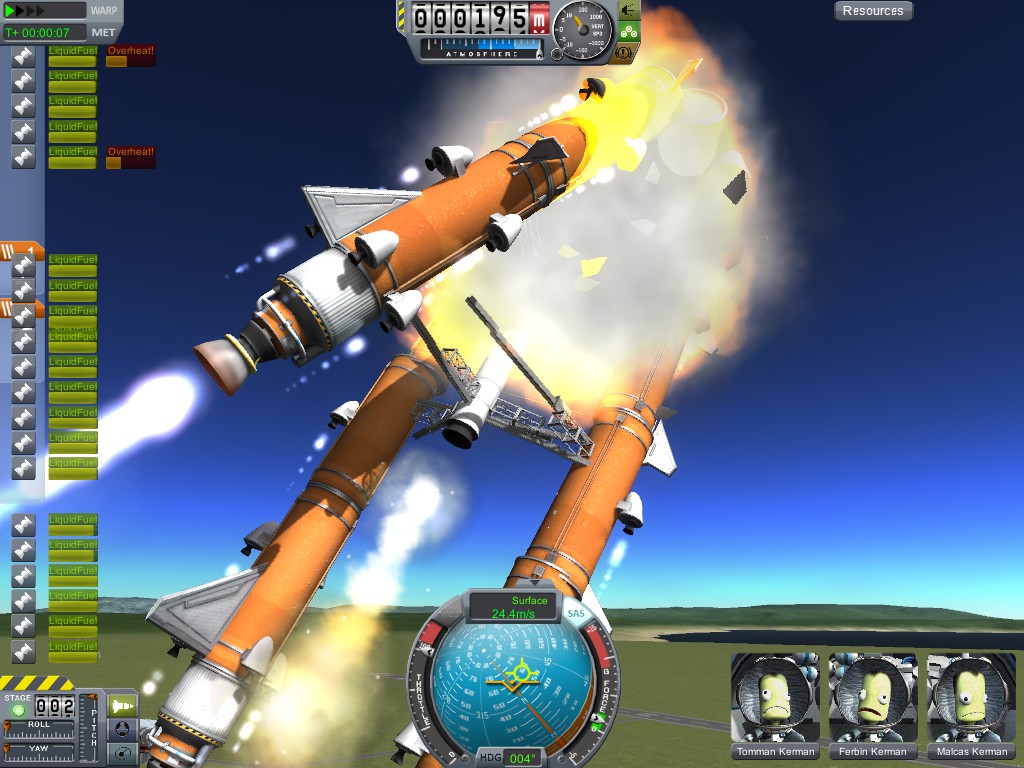
PT: What do you think the next big addition will be to "Kerbal Space Program?"
CJ: We're all working really hard on bringing Career Mode features to players. It's a rather large addition to the game, as it's a whole suite of interconnected features that's designed to work seamlessly across the Career and Sandbox modes. It’s a part of the game we’ve been planning for some time, and we’re excited to start developing and revealing more and more of it over the next series of updates.
PT: Are you working on any other cool projects besides "Kerbal Space Program?"
BH: The team has some ideas for what’s after "KSP," but we are focused on making sure we make "KSP" the best possible game it can be at this time.
PT: Hypothetical situation: It is revealed that we're sending another Voyager-type of mission out into space. The space agency comes to you and says that you can choose one thing to put on the "Golden DVD" (or "Golden Blu-Ray," I suppose) that would best represent humanity. What do you put on that disc?
CJ: I'd ask for one thing that each person on Earth holds most dear to them. Then encode the images and information provided for each person onto the disc. Hopefully that would give the discoverer an idea of the remarkable diversity of humanity.
BH: I’d want it to include images and video of people helping each other and smiling. At the end of the day, the love we have for each other is the best representation for humanity.
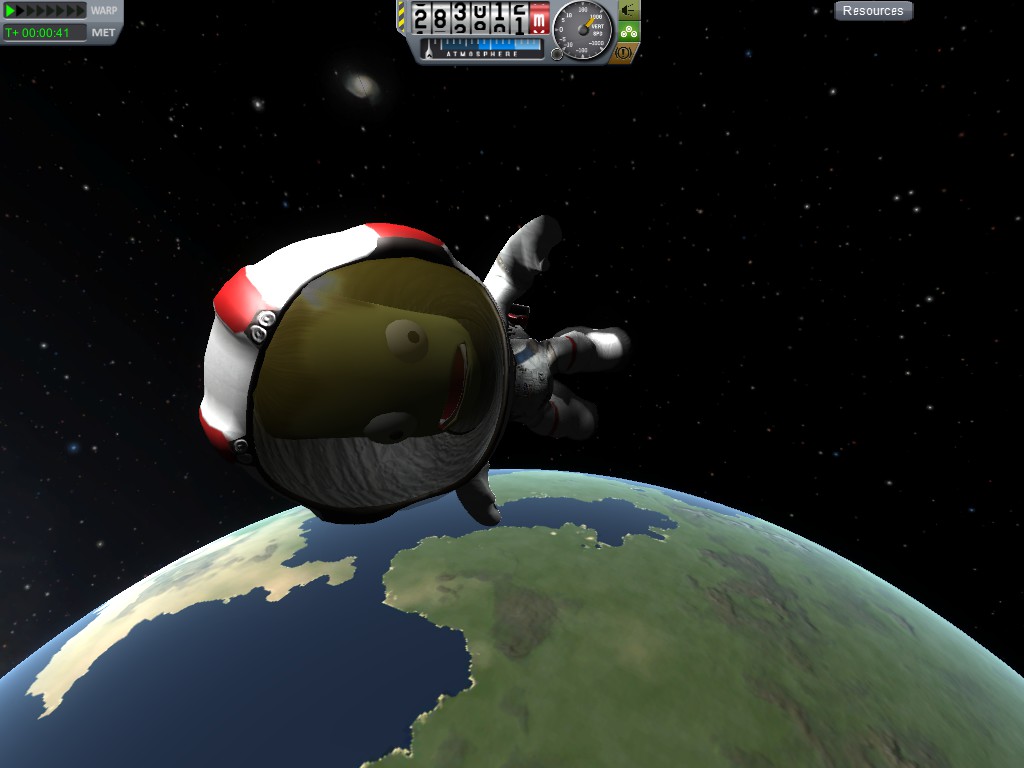
So there it is, a talk with two awesome people in an fantastic game studio developing a completely remarkable game. I get bored or distracted with most sandbox games that just give me unlimited power, but that has never happened to me with "Kerbal Space Program." I have to be careful whenever I open it up, because I know that my plan to "just do one quick launch" will quickly turn into "oh, I can fix this thing real fast, and it'll be even better." Suddenly four hours have passed, and I decide that maybe I didn't need to go do errands that day anyway.
Of all the games that I've played, my proudest achievement has to be landing one of my ships on the Mun (you know, the moon).
Okay, maybe it wasn't so much a landing as it was a crash.
And maybe none of the Kerbalnauts survived. Maybe a flag didn't get put down all official-like. But I did leave behind a trail of very nice wreckage, and y'know what? That's close enough.

If you like engineering, spaceships, space (in general), physics, tiny enthusiastic astronauts, incredible mods, and/or the occasional crash and explosion, "Kerbal Space Program" is definitely a game that you want to check out. It's still in alpha, and probably will be for a while, but games like this don't come around very often, and the faster you give it a shot, the faster you'll be joining tens of thousands of people launching Kerbal-manned spacecraft to the Mun ... and beyond.
Source: Kerbal Space Program